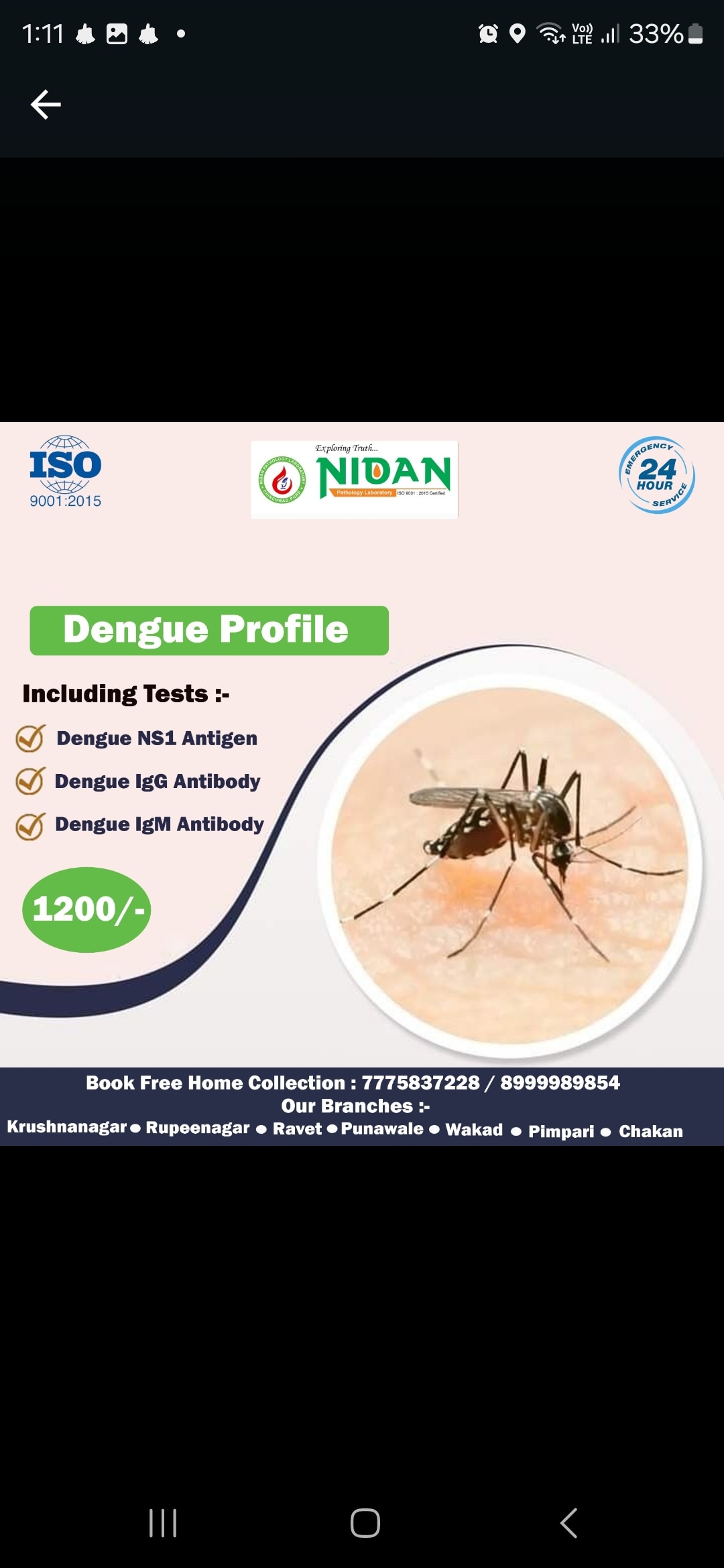Description
In Pimpri Chinchwad Pune Exploring Truth... NIDAN Pathology Laboratory ISO 9001:2015 Certified A Dengue Profile test is a blood test that helps diagnose dengue fever by detecting the presence of the dengue virus and antibodies produced in response to the infection. It typically includes tests for Dengue virus NS1 antigen, Dengue IgG and IgM antibodies, and a platelet count. This profile helps determine if a person has a current or past dengue infection, and the test can also be used to monitor the progression of the disease and guide treatment decisions. Key components of a Dengue Profile: Dengue NS1 Antigen: Detects the presence of the dengue virus itself, which is useful for diagnosing early-stage infections. Dengue IgG Antibodies: Indicates a past dengue infection. Dengue IgM Antibodies: Suggests a recent or current dengue infection. Platelet Count: Dengue can cause a significant drop in platelet count, and this test helps monitor for this complication. Why is a Dengue Profile test important? Early detection: Helps diagnose dengue fever at an early stage when treatment is most effective. Monitoring progress: Assesses the progression of the disease. Guiding treatment decisions: The test results can help healthcare providers determine the best course of treatment. Managing complications: Allows doctors to detect and manage potential complications like severe dengue hemorrhagic fever or dengue shock syndrome. Differentiating from other illnesses: Dengue symptoms can be similar to other diseases, and this test can help differentiate dengue from other infections. When should you get a Dengue Profile test? If you have symptoms like high fever, severe headache, joint and muscle pain, rash, or bleeding. If you have recently traveled to an area where dengue fever is prevalent. If you suspect you may have dengue fever. How to prepare for a Dengue Profile test: There are typically no specific preparations needed for a Dengue Profile test. You may be advised to avoid alcohol and nicotine for 24 hours before the test. Fasting for 10-12 hours before the test is generally recommended, but not always necessary. You may need to stop taking certain medications if advised by your doctor. Book Free Home Collection : 7775837228/8999989854 Email Id: nidanpathology331@gmail.com Rupeenagar Chakan | Punawale Wakad | Pimpari | Krushnanagar | Ravet


 120min
120min